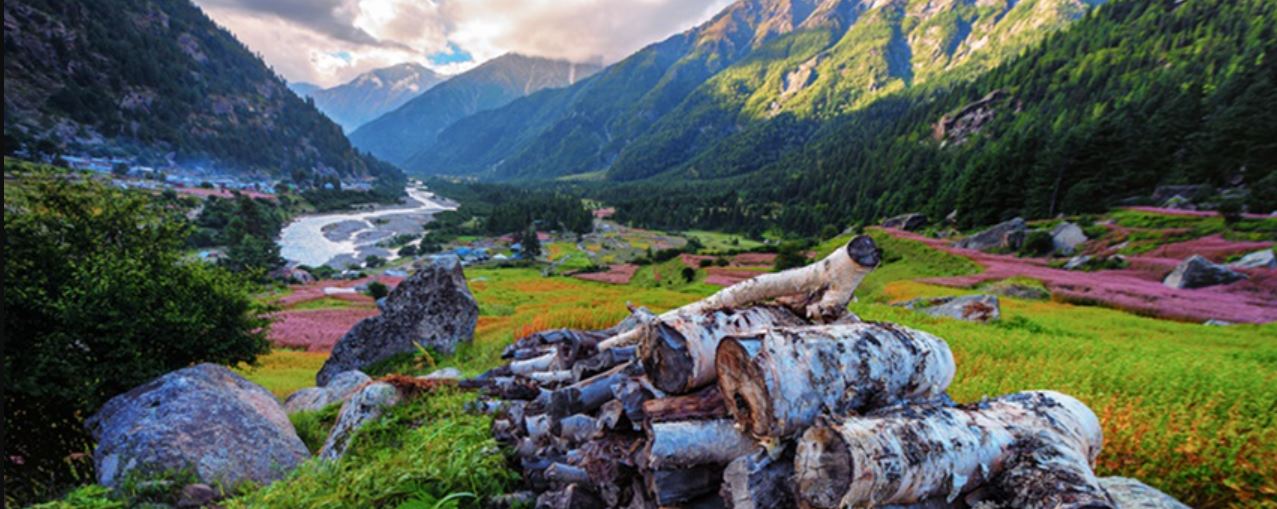Sep
A Journey to Chitkul – The Last Village of India
Event

Details Of The Event
Tucked away in the folds of Himachal Pradesh's Kinnaur district lies Chitkul – a quiet little village that feels like the end of the world. Officially, the last inhabited village on the Indo-Tibetan border, Chitkul, isn’t just a destination; it’s an experience. Chitkul, nestled deep in Himachal Pradesh’s Kinnaur district, offers more than just scenic views—it is a window into the rich traditions, unique lifestyle, and deep-rooted spirituality of the Kinnauri people. Here’s how a 7-day cultural immersion in Chitkul could unfold:
Day 1: Arrival and Acclimatization
After a long but scenic drive through the Baspa Valley, you’ll arrive in Chitkul—India’s last village near the Indo-Tibetan border. The first day is about settling in, acclimatizing to the altitude, and absorbing the crisp Himalayan air. Enjoy a warm welcome in a traditional homestay, where your hosts greet you with local butter tea and stories of the land. As the sun sets, gather around a wood-fired stove and listen to folk tales from your hosts, setting the tone for the days ahead.
Day 2: Village Walk & Architectural Discovery
Begin your day with a slow, guided walk through the village. Chitkul’s wooden homes, intricate carvings, and slate rooftops reflect traditional Kinnauri architecture. Visit the Mathi Devi Temple, believed to be over 500 years old and central to the village’s spiritual life. Learn about its Tibetan-influenced design and its role in local rituals. Interact with artisans who specialize in woodwork and woolen weaving, and get hands-on experience with a spinning wheel or loom.
Day 3: Culinary Traditions & Local Food
Food is a powerful expression of culture, and today is all about culinary exploration. Join a local family in their kitchen to cook traditional dishes such as chana madra, siddu, and thukpa. Discover the importance of seasonal and high-altitude ingredients like buckwheat, rajma, and yak milk. In the evening, share a community-style meal with your hosts and neighbors, with local folk music and storytelling as accompaniment.
Day 4: Spiritual Practices & Rituals
Today is devoted to spiritual and religious customs. Visit a nearby gompa (Buddhist monastery) and participate in the morning prayer session. Learn how Buddhist and Hindu beliefs coexist in this region, influencing everything from daily routines to festivals. A local elder may guide you through a simple mindfulness practice based on local spiritual beliefs, offering insight into the inner life of the mountain people.
Day 5: Nature and Agriculture
Explore the agricultural side of Chitkul culture. Depending on the season, participate in traditional farming tasks—harvesting apples, collecting firewood, or helping in barley fields. Visit terraced farms and learn about the challenges of high-altitude agriculture. In the afternoon, take a walk along the Baspa River, stopping to chat with shepherds and farmers who sustain the village economy.
Day 6: Art, Music & Dance
Immerse yourself in the creative traditions of Chitkul. Learn a local folk song or participate in a nati (traditional Kinnauri dance) session with village youth. Meet local artists and try your hand at painting with natural dyes or carving small wooden tokens. In the evening, enjoy a cultural gathering with performances of music and dance—an intimate celebration of the region’s rich artistic heritage.
Day 7: Reflection & Farewell
Your final day is a quiet one—meant for reflection and heartfelt goodbyes. Walk once more through the village, share one last meal with your host family, and gather for a small farewell ceremony. You leave with memories, handmade keepsakes, and a deep respect for the rhythm of life in this high-altitude Himalayan community.
This 7-day journey through Chitkul isn’t just about seeing a place—it’s about becoming part of it, if only briefly. It’s an invitation to slow down, listen, and connect—with people, nature, and the timeless traditions of the Himalayas.


